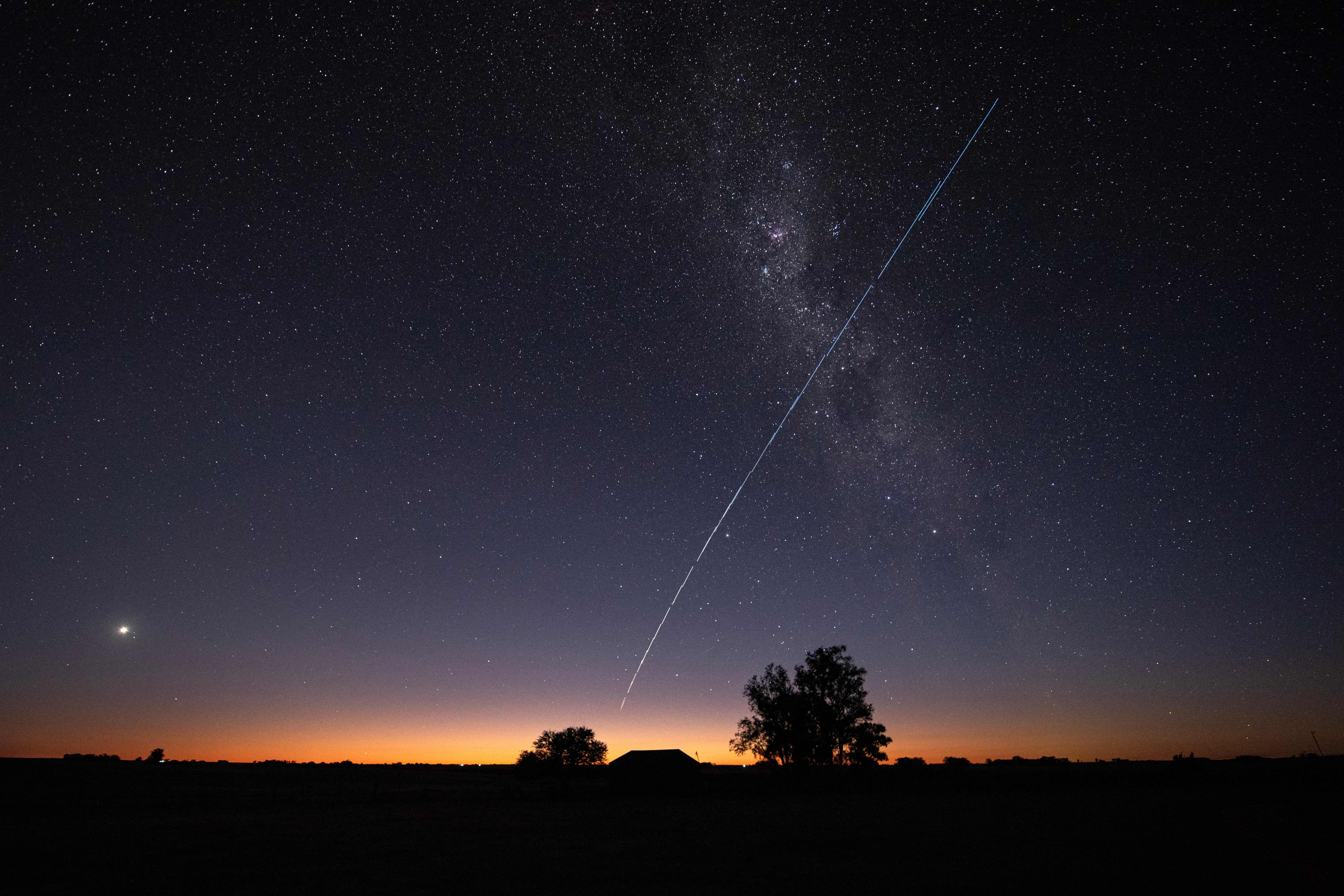A vast meteor striking Earth might have brought about whole new kinds of life, scientists say
Oceans would have boiled away and everything would have been coated in a deadly dust – but still something thrived

Life on Earth may have been hoped out by a collision with a vast asteroid early in its history, according to researchers.
Some 3.26 billion years ago, when such impacts were more regular than they are now, our planet crashed into a meteorite the sizer of four Mount Everests, up to 200 times larger than the one that wiped out the dinosaurs. But it could have proven useful in helping lead to the life that surrounds us today, researchers believe.
The time after the impact would have been hellish, researchers suggest. A huge tsunami would have mixed up the ocean and pulled debris away from the land, the heat would have been so hot that it boiled off the top of the ocean and heated the atmosphere, and everything would have been covered by a blank of dust that would have stopped photosynthesis.
But bacterial life appeared to bounce back quickly, making the most of the conditions.
Nadja Drabon, an early-Earth geologist and assistant professor in the department of Earth and planetary sciences, University of Harvard, USA, said: “We think of impact events as being disastrous for life.
“But what this study is highlighting is that these impacts would have had benefits to life, especially early on ... these impacts might have actually allowed life to flourish.”
The S2 meteorite is estimated to have been up to 200 times larger than the one that killed the dinosaurs.
Analysis suggests it triggered a tsunami that mixed up the ocean and flushed debris from the land into coastal areas.
Heat from the impact caused the topmost layer of the ocean to boil off, while also heating the atmosphere, and a thick cloud of dust blanketed everything, experts say.
But according to the research, bacterial life bounced back quickly, and with this came sharp spikes in populations of single-celled organisms that feed off the elements phosphorus and iron.
The scientists suggest iron was likely stirred up from the deep ocean into shallow waters by the tsunami, and phosphorus was brought to the planet by the meteorite itself and from an increase of erosion on land.
Prof Drabon’s findings indicate that iron-metabolising bacteria would therefore have flourished in the immediate aftermath of the impact.
Experts suggest this shift towards iron-favoring bacteria is a key puzzle piece depicting early life on Earth.
Evidence of the impact is found in the Barberton Greenstone belt of South Africa today,
Dr Drabon said: “Picture yourself standing off the coast of Cape Cod, in a shelf of shallow water.
“It’s a low-energy environment, without strong currents. Then all of a sudden, you have a giant tsunami, sweeping by and ripping up the sea floor.”
The findings are published in the Proceedings of the National Academy of Sciences journal.
Additional reporting by agencies
Join our commenting forum
Join thought-provoking conversations, follow other Independent readers and see their replies
Comments
Bookmark popover
Removed from bookmarks